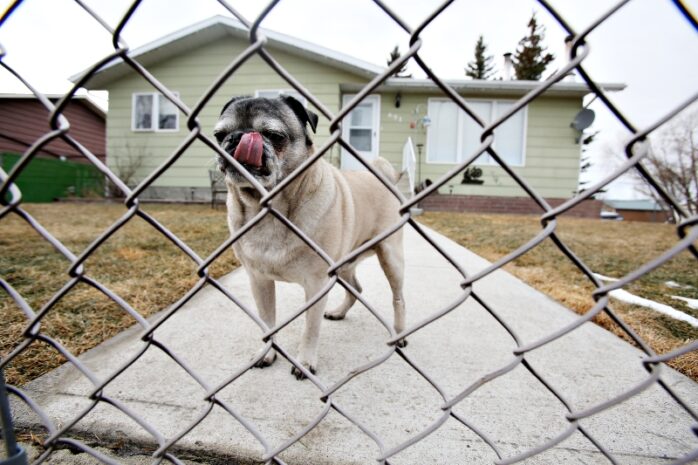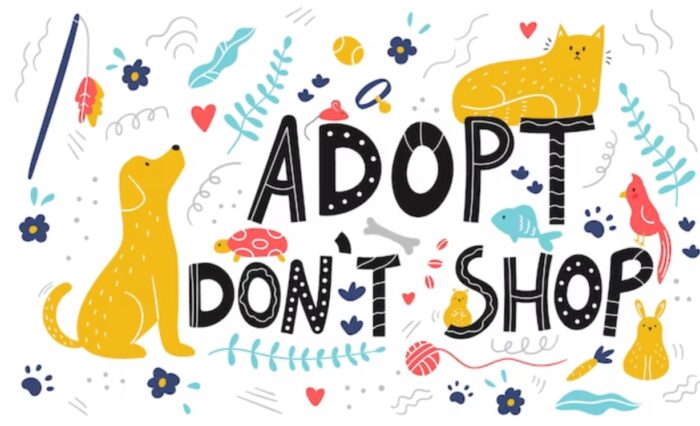
Bringing home a new puppy or older dog means a future full of joy, as well as more responsibilities. Especially in California, where dog ownership is serious business. The Golden State has some of the nation’s strictest laws on pet regulation and owner liability.
For these reasons, it’s important to familiarize yourself with the state and local laws before starting the journey to dog ownership. Here’s what you need to know.
The Adopt Don’t Shop Law
The adopt, don’t shop movement started as a campaign to raise awareness of the inhumane conditions at many commercial dog breeders. Colloquially known as “puppy mills”, these businesses put profit over the health and safety of their animals.
Commercial breeders also contribute to dog overpopulation. By some estimates up to 6 million domesticated animals end up in shelters. Many of these animals, unfortunately, never find a home. The adopt don’t shop movement asked the public to stop patronizing commercial breeders, and to find loving pets from shelters instead.
California took the movement one step further and codified it into law. From 2019, pet shops may only source their animals from rescues and shelters. Instead of supporting commercial breeders, the pet sales industry now helps stray animals find their forever homes. If you keep an open mind, you can find the right dog for you through adoption.
If you’re looking for a specific dog breed, you can still purchase directly from a reputable breeder. These breeders will be registered with an official kennel club and follow a strict code of ethics.

Pet Licensing and Registration
Just as you need a license to drive a car, California now requires all dog owners to hold a license for their pets. Dogs must be licensed before they reach 4 months old. If you’re adopting an older pet from a shelter, it’s likely that the dog is already licensed.
The licensing process is easy. Owners fill out a simple form with their pet’s identifiable information and medical history and pay a small fee. Licensing occurs at the municipal level. For example, if you live in Los Angeles, a general and urgent care Sawtelle vet clinic or animal control center can help you meet licensing requirements. Some cities give licensing fee discounts for veterans, seniors, or animals that have been spayed or neutered.
Licenses must be renewed periodically usually every one to three years. Failing to keep your pet license up to date can result in fines.
In addition to licensing, all dog owners must microchip their pets within a month of adoption. Microchips are a small encrypted chip that is readable through a scanning device. The chip is usually embedded under the dog’s skin. You won’t be able to see it, and it won’t bother your pet. However, if your dog ever gets lost one day, a shelter or veterinarian’s office can scan the microchip and find your contact information. In fact, without a microchip, you may not be able to get your dog back, even if it is found!
Microchips don’t require any maintenance once inserted. However, they can stop working. You can ask your vet to check your dog’s microchip during their annual visit to make sure it can still be scanned. You should also keep your contact information on the microchip’s registration file up to date.
Mandatory Vaccines and Medical Procedures
Keeping your new dog healthy and happy is not just the right thing to do- it’s the law. California requires all dogs to have an up-to-date rabies vaccine. Rabies is a deadly virus that affects animals and humans alike. Because of widespread rabies vaccination mandates, deaths from the disease are rare. Most dogs get their first rabies vaccines before turning 4 months old. After their first booster shot, dogs require rabies vaccines every three years. Proof of an active rabies shot is required for adopting and licensing a dog in California.
Recent state laws now also mandate that all animals adopted through a shelter or rescue are spayed or neutered. This is great news if you are looking for a new dog, as you will not have to pay for this cost out of pocket. The regulation means that all adopted dogs will come with proof of the surgery. This is also helpful for registering and licensing your new pet.

Leash and Containment Laws
In California, leash laws and containment requirements are crucial for the safety of dogs and the community. Most public spaces, parks, and residential areas mandate that dogs be on a leash not exceeding six feet in length. These laws aim to prevent accidents, protect wildlife, and ensure that all community members can enjoy public spaces safely. Responsible pet ownership, including adhering to these laws, is essential in preventing potential incidents and contributing to a harmonious community environment.
Breed-Specific Legislation (BSL)
California’s approach to Breed-Specific Legislation varies by city and county. Some areas have implemented ordinances that place restrictions on specific breeds considered potentially dangerous, such as Pit Bulls or Rottweilers. These regulations may require special licensing, mandatory spaying or neutering, and specific containment measures. It’s important for dog owners to be aware of and comply with any breed-specific laws in their locality to avoid legal issues and ensure community safety.
Noise and Nuisance Regulations
Regulations regarding excessive barking and nuisance behavior are in place to maintain peace within communities. Local ordinances typically outline the process for filing complaints about continuous noise or disruptive behavior. Consequences for non-compliance can range from fines to mandatory obedience training for the dog. Understanding and addressing the root causes of nuisance behaviors is key to preventing complaints and fostering positive relationships with neighbors.

Dog Bite Liability
California enforces a “strict liability” rule concerning dog bites, holding dog owners accountable for injuries caused by their pets, regardless of the dog’s past behavior or the owner’s knowledge of potential aggression. This law underscores the importance of responsible pet management and training to prevent aggressive incidents and protect both the public and the pet owner from legal repercussions.
Animal Cruelty Laws
The state of California has stringent laws against animal cruelty and neglect, emphasizing the responsibility of pet owners to provide adequate care, including food, shelter, veterinary care, and humane treatment. Violations of these laws can lead to significant legal consequences, including fines and imprisonment, highlighting the state’s commitment to animal welfare.
Support Resources
California offers a variety of resources to assist pet owners, including low-cost spay/neuter clinics, vaccination services, and obedience training classes. These resources are designed to help owners fulfill their responsibilities more effectively, ensuring the health and well-being of their pets while contributing to the overall safety and harmony of the community.

If you would like a dog for breeding purposes, you would need to get a breeder’s permit first. As with all of California’s rules, the measures are in place to reduce pet overpopulation and ensure more animals go to loving homes.





